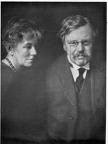
We all are - or should be - servants: servants of others and of each other.
In so doing we imitate the very God Himself who, though He was the Creator of all things, did not shrink from making Himself the servant of His own creation.
In the famous Ford Maddox Brown painting (left),
the Second Person of the Holy, Undivided and Everlasting Trinity washes the feet of His own disciples, setting a famous example for us all.
At the great feast of the institution of the Holy Eucharist, on
Maundy Thursday, this great act of humility and love is re-enacted as the celebrant priest washes the feet of 12 members of the congregation.
The choir sing the famous words based upon the Gospel of St John -
Ubi caritas et amor, Deus ibi est - "Where charity and love are, there is God" and
the Last Supper is remembered when the God of earth and heaven gave His own precious Body and Blood as food for His children.
This is the heart and centre of the Christian religion.
In it is contained the most noble of all its teachings: we are all to be servants of each other as God made Himself our servant and as the
Son is servant to the
Father and, in turn, the Father serves the Son.
Just as the Father serves so does a Christian father and, indeed, a Christian king or master.
Indeed, the relationship between the Father and the Son and between God and His people is the model for the relationship between every master and every servant.
The Christian
master is a father to his
servant. They obey him and he protects and cares for them. Their bond is a bond of mutual charity, loyalty and fidelity. It is a quasi-familial, paternal relationship, just as the relationship of priest and people is a paternal relationship.
Such was the model of the master-servant relationship that obtained in old Christendom. Think of good King St Wenceslaus fetching food for the poor and warming the feet of his servant or of King St Louis of France or of any of the saintly kings of Christendom.
 A stylized view of Good King St Wenceslaus and his servant
A stylized view of Good King St Wenceslaus and his servant
Nowadays, this relationship - based upon the divine - is mocked, derided and scorned to ridicule and falsely caricatured as a relationship of exploitation, venal peculation and cruelty by the master and of craven, stupid subserviance on the part of the servant.
What a shameless lie!
This, indeed, is what the relationship became when it ceased to be based upon the divine charity and instead became the pedestrian, mundane and loveless relationship of "
employer" and
employee".
No longer was the relationship familial but merely a cold, sordid relationship of money, exchange, trade and mutual exploitation.
 Old master was replaced by new "employer" who cared only for money and kept his "employees" only so long as they were useful to him.
Old master was replaced by new "employer" who cared only for money and kept his "employees" only so long as they were useful to him.
The employer sought only to maximize his profits through hiring employees who, once no longer useful, were "let go" and dispensed with as mere surplusage to fend for themselves.
The employee sought to extract from his employer all that he could in wages and recognised his authority for only so long as it suited him.
The employers used the employee as a mere commodity and the employees combined together to squeeze out of the employer every last penny that they could through strikes and walk-outs.
The familial and paternal relationship of mutual love, respect, loyalty and fidelity for life was gone - smashed by the preposterous Victorian "Political Economists" with their "hidden hand" of mutual exploitation which led to the ghastly mills, factories and workhouses of Victorian England.
Later smashed still further was it by the rise of the "wild-cat" striker Trade Unions, eschewing all responsibility in the name of the Worker's Marxist paradise. Reacting to the new evil of employer Capitalism came the devilish creed of Communism.
 Reacting to the new evil of employer Capitalism came the devilish creed of Communism.
Reacting to the new evil of employer Capitalism came the devilish creed of Communism.Such became the new relationship between men: mere employer and mere employee. Love died and dull exploitation replaced it.
Yet modern man fatuously rejoices in these new, loveless titles!
This was even - ridiculously - called "progress"!
The idea of any man serving another man as "servant" to his "master" was laughed to scorn. The master no longer felt any responsibility to his servant and the servant no longer felt any loyalty to his master.
The very idea of serving others was cast aside in favour of serving only oneself - the creed of Hell. Like their new master, the Devil, men said "I shall not serve".
Egalitarianism again raised its ugly, diabolical head, for where all are equal then none can appeal to any higher authority for justice and the rule of might conquers the rule of right.
As Gilbert and Sullivan put it so aptly "When every body's somebody then no-one's anybody".
In fact, of course, hierarchy is the natural order for mankind since that is how heaven is and will be. God intends that some should be masters and some servants, so that all can appeal to a higher authority, but both are really servants of a different sort, serving each other and others, in differing ways.
The motto of the Royal Military Academy Sandhurst describes well the role of a Christian leader: "Serve to lead".
 "Serve to lead"
"Serve to lead"
- the motto of the Royal Military Academy SandhurstLeadership is a form of service to others. A Christian leader seeks first to serve and not to be served, just as his master, Christ the King, came to serve rather than to be served.
So it was that our Lord commended the gentile Centurion who came to him and asked that our Lord heal his servant. He said these profound words:
"Lord, my servant lieth at home sick of the palsy, and is grievously tormented. And Jesus saith to him: I will come and heal him. And the centurion making answer, said: Lord, I am not worthy that thou shouldst enter under my roof: but only say the word, and my servant shall be healed. For I also am a man subject to authority, having under me soldiers; and I say to this, Go, and he goeth, and to another, Come, and he cometh, and to my servant, Do this, and he doeth it".
[Matt 8:6-9]Our Lord marvelled at this, the Centurion being a gentile.
"And Jesus hearing this, marvelled; and said to them that followed him: Amen I say to you, I have not found so great faith in Israel". [Matt 8:10] "I have not found so great faith in Israel"
"I have not found so great faith in Israel"
- the prayer of the Good Centurion was Domine, non sum dignus - "Lord, I am not worthy..."
Now we say the Centurion's prayer 3 times at Mass whenever we prepare to receive the Holy Eucharist in Holy Communion:
Domine, non sum dignus ut intres sub tectum meum, sed tantum dic verbo et sanabitur anima mea.
"Lord, I am not worthy to receive you under my roof, say but the word and my soul shall be healed."This is the prayer of a true Christian master, officer and leader who, loving his own servant as a son, is himself a servant to others.
This is how all Christian masters and leaders should be, whether they are kings, military officers, professional men, or political or business leaders.
They should be as fathers to their servants, not merely employers to their employees.
One gets something of the flavour of the old Christian bond between master and servant, in an amusingly eccentric English way, in the relationship between Lord Peter Wimsey, and his butler, Bunter, the aristocratic detective and his servant, both creations of English writer Dorothy L. Sayers. [Note for American readers: only the sons of Dukes and Marquesses have the courtesy title of "Lord" before their first name and family surname. A life peer in the House of Lords has the title of "Lord" before his family surname
only. These days plenty of ignorant English writers get this wrong.]
Unlike other "employers" Wimsey will never part with Bunter and always provides for him. Bunter, on the other hand, saved Wimsey's life in the trenches of the First World War, as he lay wounded in no-man's-land.
It is unquestionably a relationship of love between master and servant, a relationship now mocked by "progressive" - and ignorant - modern man.
Lord Peter Wimsey and Bunter share a mutual love and respect which modern secularist man - in his utter ignorance and clod-like inability to think beyond himself - simply cannot fathom. Lord Peter Wimsey and his manservant, Bunter,
Lord Peter Wimsey and his manservant, Bunter,
share a mutual love and respect which modern secularist man - in his utter ignorance
and clod-like inability to think beyond himself - simply cannot fathom.
HRH the Prince of Wales, the heir to the throne, has, as his motto, the German phrase
Ich Dien which means simply "I serve". It is a profoundly Christian idea. Even the heir to the throne must regard himself as a servant.
 Ich Dien
Ich Dien
is the motto of HRH the Prince of Wales and means "I serve".
Even the heir to throne must regard himself as a servant.
Like a good father, the Christian master does not throw out his servant when he is no longer useful but rather cares for him in his old age remembering the good service that the servant did when he was fit and young.
He does not merely dump him upon the resources of the state, community and society as the modern employer does once he no longer has any use for the employee.
Likewise the servant shows a filial loyalty and love for his master just as God the Son does for the God the Father, as a son does for his father and as a good religious does for his Father superior.
Ultimately, the good Christian master shows the same paternal love for his servant as the father does even for his prodigal son, never casting him off but bearing with him even when he is froward, wasteful or neglectful.
 Bartolomé Esteban Murillo. The Return of the Prodigal Son. 1667-1670.
Bartolomé Esteban Murillo. The Return of the Prodigal Son. 1667-1670.
What a disaster for mankind it was when the wonderful relationship of the Christian master and the Christian servant was consciously rejected.
Like so many evils, the beginnings of this rejection is to be found in that cataclysm that historians call the Protestant Reformation. Fortunately, not all Protestant masters rejected the old idea and many continued to treat their servants in the old, charitable way. It was the so-called Enlightenment and the later Industrial Revolution which eventually deprived the world of the beautiful old relationship that God intended to exist between a master and his servants.

The Servant King
...




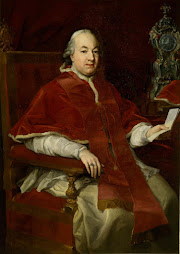

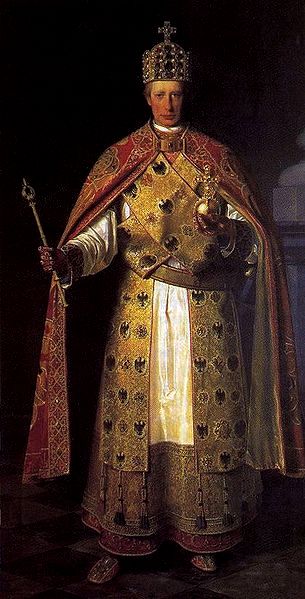




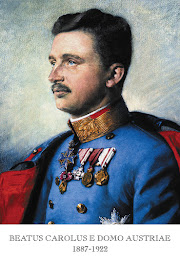




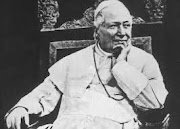
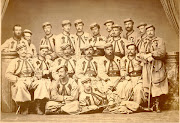
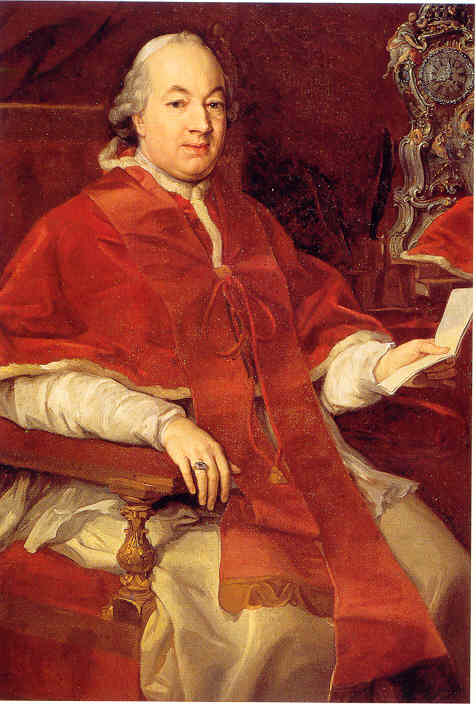
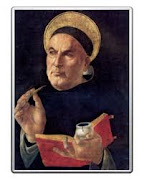

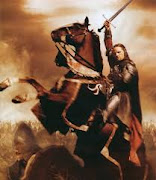

_-002.jpg/220px-Circle_of_Anton_Raphael_Mengs,_Henry_Benedict_Maria_Clement_Stuart,_Cardinal_York_(ca_1750)_-002.jpg)
